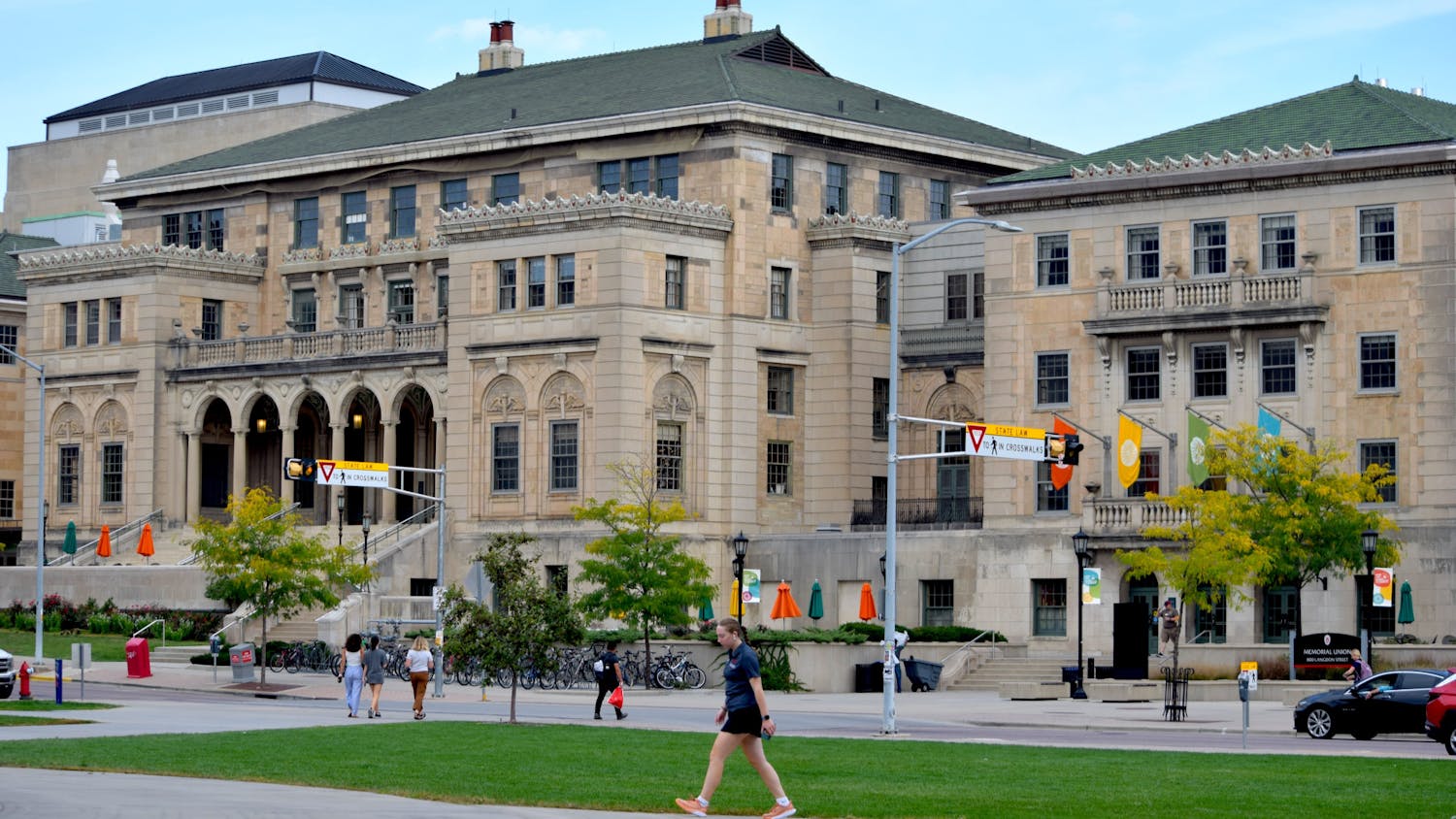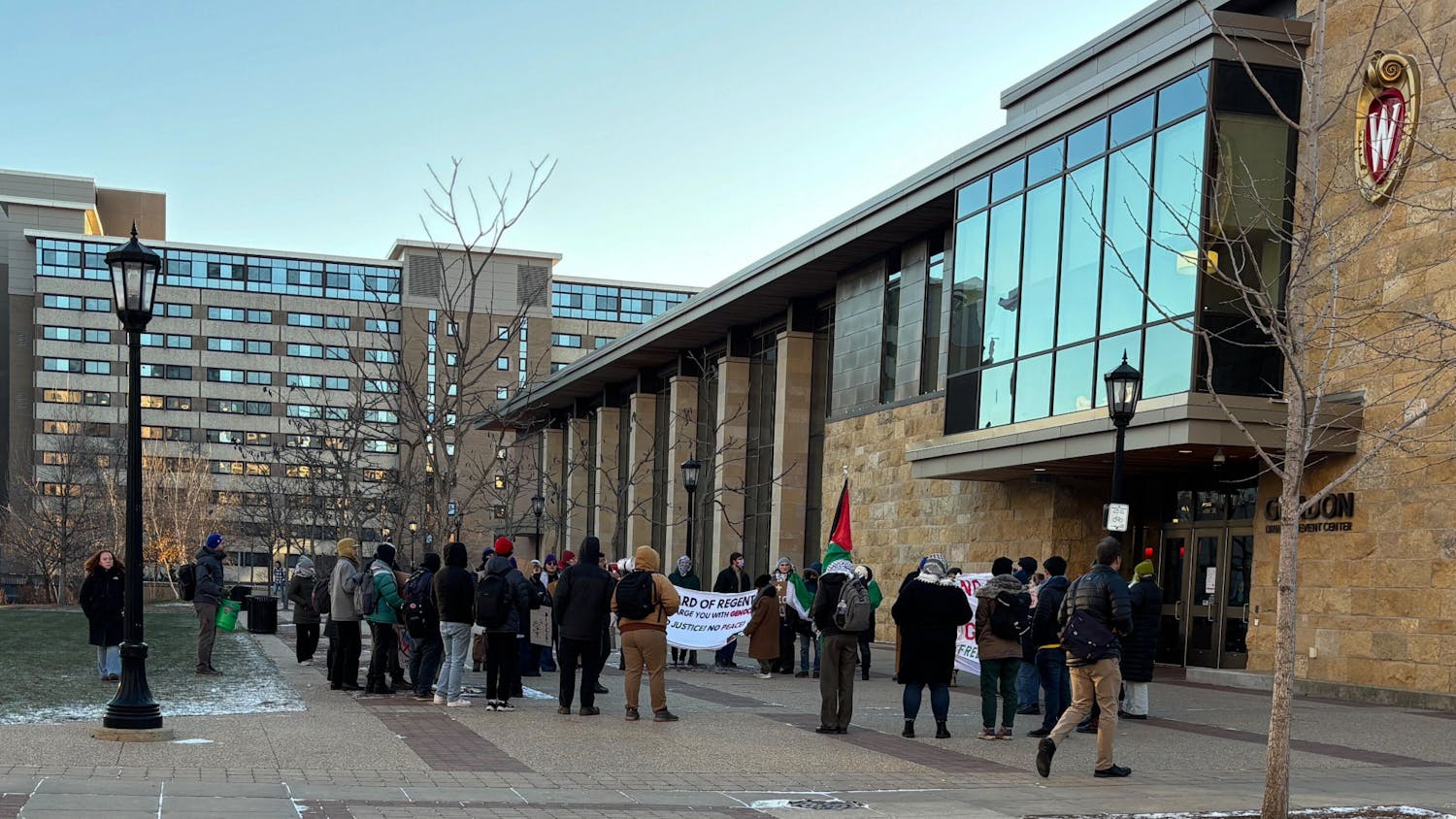As students at the University of Wisconsin-Madison, we are defined by our unequivocal willingness to protest wrongful ideas, beliefs, and actions. Protest serves as a reminder to lawmakers and administrators that the student voice refuses to be silenced. The greatness of UW-Madison stems not only from the virtue of academics, but from the power students have to shape these resources and define what our university stands for.
The students of this university have rarely backed down from the need to incite change, and the persistence of our academic forebearers has paved the way for a more empowered campus. In 1944, student-led protests pressured The University Club to allow Arthur E. Burke, a black PhD student, to rent a room he was previously denied.
Students and faculty collaborated in early 1969 to strike and demand more studies in African American history, ultimately leading to the formation of the Department of Afro-American Studies. In the 60’s, UW students notoriously took an early stand against the Vietnam War and the use of napalm, utilizing their freedom of speech to ultimately promote civil discourse on campus.
In February 1999, a small group of 40 students refused to leave Bascom Hall until the chancellor agreed to push for stronger anti-sweatshop guidelines for collegiate apparel.
Through decades of utilizing the power of protest, it has been the student body more than any other administrative group that has reformed and progressed our campus.
On October 6, the UW System Board of Regents voted to allow punishments to students who exercise the very power that has progressed our campus. The new Board of Regents policy waves the threat of suspension and expulsion over students who “disrupt the expressive rights of others.”
This functions as a unilateral threat to students who would be so bold as to exercise their inalienable right to free speech - and the Board of Regents had the audacity to approve this policy in the name of the very free speech they threaten.
With this new policy, UW System administrators have taken a step towards pacifying a campus community known precisely for its rich history of resistance. Instead of promoting freedom of speech, this policy strips this freedom from the very students whose voices the university system is designed to elevate — particularly the marginalized groups who for decades have used protest to push the UW-Madison campus closer to equity and justice.
Protests, demonstrations and peaceful disruptions are just as much a part of the conversation as the perspectives that controversial speakers bring. When students respond to campus speakers, we are contributing to the discussion. When the Board of Regents invoke the threat of punitive action against that contribution, they erode the foundation and right of student engagement.
This campus, above all, serves the 43,000 students that call it home — not the Board of Regents, not the state Legislature and not any one speaker that comes to campus. The campus community should fight relentlessly to oppose any policy that removes the ability of the student body to handle its own affairs of speech; getting loud, getting active, and getting disruptive are the first steps in reclaiming what we have lost.
We stand beside you, our fellow students, against this affront to our rights, and we affirm our commitment to continue working alongside the student body, strong in the depth and diversity of our perspectives and backgrounds, to push back against the efforts of the Board of Regents, and any other entities that seek to strip away our rights and historic identity as a community willing and able to take an active role in contributing to and improving our University.
In the bonds,
Iron Cross Society Class of 2017-2018
The Iron Cross Society is a secret society founded in 1902. Comprised of students, we work to better the great University of Wisconsin and defend its values when others take aim. What are your thoughts on the policy? Please send any and all questions, comments and concerns to opinion@dailycardinal.com.






